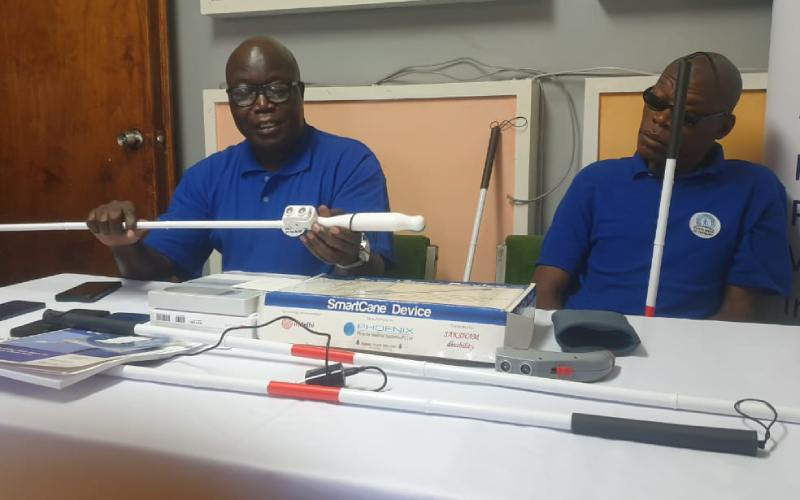×
The Standard e-Paper
Smart Minds Choose Us

The Kenya Union of the Blind has unveiled an advanced smart cane for the visually impaired and blind to enable them to navigate safely in their surroundings.
The smart cane is quite similar to the traditional one but has been technologically enhanced to revolutionize the lives of blind and visually impaired individuals across the country.